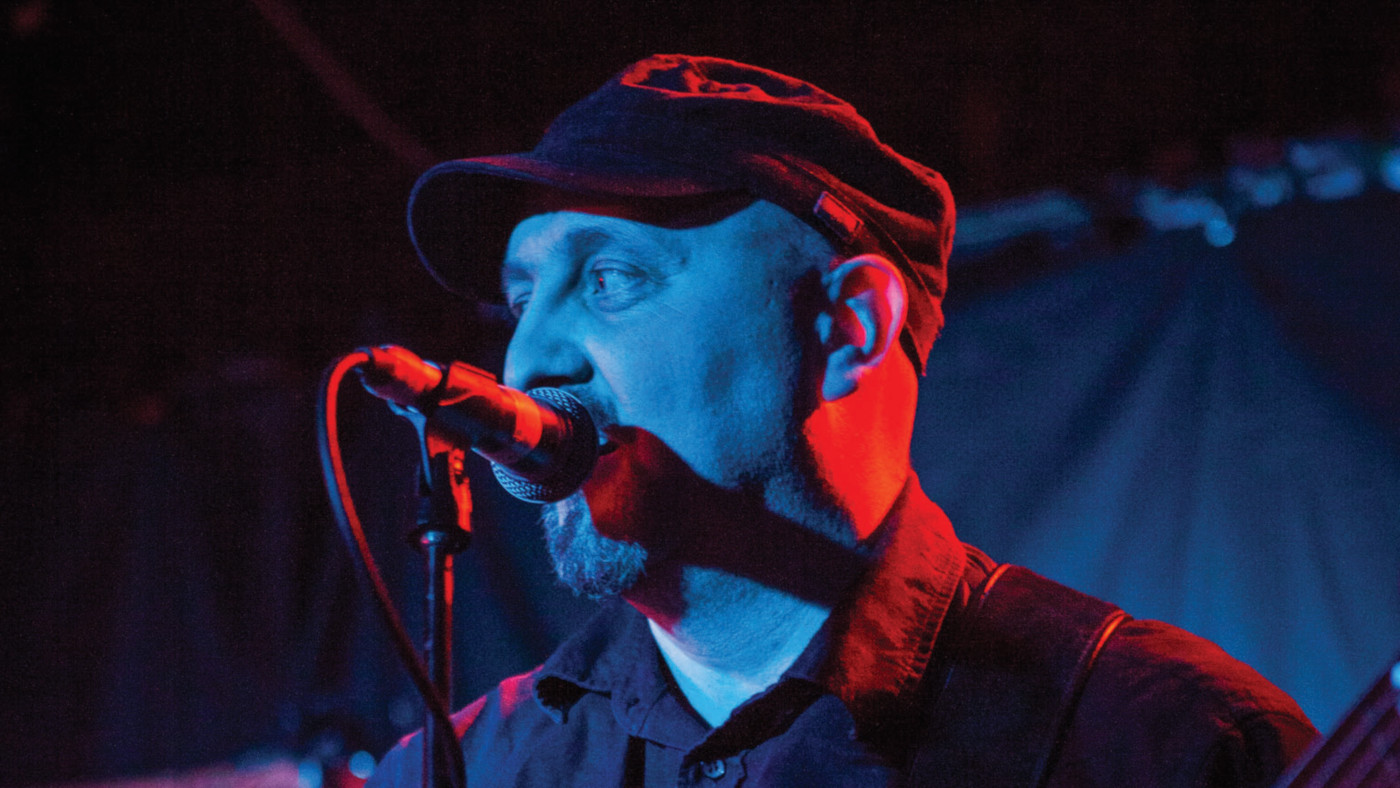Colin Edwin: “I’ve always liked playing live - it’s in my blood”
The former Porcupine Tree man talks O.R.k.

Colin Edwin, formerly of progressive types Porcupine Tree, is a busy man, with several bass-heavy projects on the go at any one time. We catch up with him as his band O.R.k. return with a new album
Tell us about O.R.k., Colin.
“O.R.k. is an acronym, although everyone pronounces it ‘orc’, like Tolkien! The band is made up of myself, Pat Mastelotto of King Crimson on drums and a couple of guys from Italy - Carmelo Pipitone on guitar and Lorenzo Esposito Fornasari, also known as LEF, providing the vocals. He was also in another band, Obake, with me. That was a much heavier project in which I was exclusively playing a downtuned bass. Lorenzo is a great singer, not least because he’s extremely versatile.”
I do backing vocals live, but I’m never going to be Geddy Lee
Do you also sing?
“A bit. I do backing vocals live, but I’m never going to be Geddy Lee - singing and playing at the same time is way too challenging for me. You have to split your brain into two and it’s painful.”
As you live in different parts of the world, rehearsal must be tricky.
“We all have scheduling issues, so we do it whenever we can. I remember the first time we went on tour, we hadn’t been in the room together playing the material, so we did a quick two-day rehearsal. But that sort of thing doesn’t phase me any more, because I’ve realised that nothing moves you on faster than a deadline. It’s best to just jump in and do it. Musically it always works, as long as you’re playing with people who know what they’re doing - it’s just logistical things that are the real problem.”
Want all the hottest music and gear news, reviews, deals, features and more, direct to your inbox? Sign up here.
What basses are you using these days?
“In my basement I’ve got 10 or 12 bass guitars. There are three or four that I use a lot for recording, but live I’ll be using my US-made Spector fretless. It’s a four-string with a Hipshot detuner - pretty much all my basses have those. I’ve always preferred them to playing a five-string. Mine is a really nice, expressive instrument.
“If I’m not using that, nine times out of 10 I’ll use a fretted Wal. I have a couple of them from the early '80s, and I alternate between the two of them. I’ve used them both a hell of a lot, but they still do the job.”
Live blood
These basses have relatively modern tones. Do you ever feel the need to ‘go Motown’?
“Absolutely. I never used to believe it when people said you couldn’t get a traditional passive tone from a modern bass, but it’s at least partly true - so recently I’ve been investigating the Ovation Magnum bass. I have a couple of vintage models that are really wild.
“They wouldn’t be cost-effective to make now, because they’ve got huge great lumps of metal on them and enormous pickups. Their design was of its time, but they have a passive character that you can’t seem to get from anything else.”
What other gear have you got?
I’m a long-time EBS user and I’m taking out a Reidmar amp on this tour
“I’m a long-time EBS user and I’m taking out a Reidmar amp on this tour. It’s very simple and reliable, with a classic sound that works great with whatever bass I put into it. I used an eBow on the Kneel To Nothing, the first single from our new album; it sounds like a keyboard. I use a bit of delay on a fretless to get that swell. I investigated that sound a lot.”
Do you still enjoy touring?
“Yes. Playing live is where it’s at. I do a lot of recording, so playing live gets me out of the studio and forces me to think differently for a while. I’ve always liked playing live - it’s in my blood, I guess. For better or worse, you’re in the moment, and it’s really satisfying when you have a project like this one - where everyone pulls together - and you see it all come to fruition.”
What else are you up to?
“I have the Twinscapes band with Lorenzo Feliciati, and I’m doing an album with Inna Kovtun, one of the singers from Astarta, a folk duo from Kiev, which is interesting music with fascinating harmonies. The time signatures are unusual but they’re part of the music, rather than just being there to make it all pointlessly difficult.
“It’s very bass-centric, because I really have to think about the voice and how to support the phrasing. I don’t speak the language, so I don’t understand the words, which means that there’s a real connection between the bass and the voice.”
The new O.R.k. album Ramagehead is out now on Kscope

